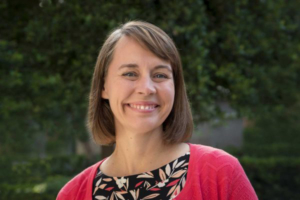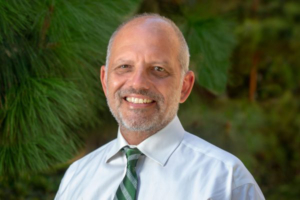Following disturbing revelations about past conduct by a former physician, USC’s student health services team is focused on moving forward with new leadership, new resources and a renewed commitment to the highest standards of care.
Many of these efforts have been underway since fall 2017, when Keck Medicine of USC assumed management of providing health care to students on the University Park and Health Sciences campuses. These services are now known as USC Student Health, and they include both health care and health promotion efforts specifically tailored to create well-being among individual students and the overall student population.
All health care providers in USC Student Health, including medical, mental health and counseling professionals, are accredited as faculty at the Keck School of Medicine of USC. They now undergo a rigorous credentialing and continual peer-review process to ensure they are providing the highest-quality professional care.
Additionally, all faculty and staff members complete extensive and ongoing training in complaints reporting. The health care facilities on both campuses are certified by the Accreditation Association for Ambulatory Health Care, which conducts an external review of the facilities every three years.
“Keck Medicine of USC is a highly regarded academic medical center whose clinician-scientists have made it one of the best in the country,” said Tom Jackiewicz, senior vice president and CEO of Keck Medicine of USC. “By integrating USC Student Health into Keck Medicine of USC, students have access to exceptional care provided by Keck Medicine’s expert health care providers.”
A leader in college health
In 2017, the university recruited Sarah Van Orman, MD, MMM, a physician and national leader in college health, to head USC Student Health as chief health officer. Van Orman, who is also clinical professor of family medicine (clinician educator) at the Keck School, is board certified in pediatrics and internal medicine and is a past president of the American College Health Association.

Sarah Van Orman
In her new role, she brings a decade of experience as executive director of university health services at the University of Wisconsin-Madison, recognized under her leadership as the top college health program nationally by The Princeton Review.
During her tenure there, Van Orman oversaw initiatives to enhance student wellness, improve access to health care and address critical public health issues such as sexual misconduct and assault, risky alcohol use and mental health challenges.
“She has added a level of rigor with data assessment and academic expertise,” said Ainsley Carry, USC vice president for student affairs. “This is critical because our student health professionals lead in helping us tackle our major student challenges.”
Van Orman is now leading an effort to better understand and respond to the needs of students living and learning at USC. Last semester, her team in the Office for Health Promotion Strategy surveyed thousands of USC scholars to assess their emotional and mental health status. The standardized survey, called Healthy Minds, is helping USC Student Health engage campus partners to advance health in all sectors of campus and determine how to allocate resources to promote student health.
Sensitive exams and related patient education
The university also recently recruited two female board-certified gynecologists to join the health care team and Keck School of Medicine. Anne Michaels, MD, assistant professor of clinical obstetrics and gynecology (practitioner) has joined the team, and Deirdre Logan, MD, will start in fall 2018 as clinical assistant professor of obstetrics & gynecology (practitioner). The two will oversee women’s health care services at USC Student Health.
In addition, USC Student Health is ramping up educational outreach to students on patient rights and responsibilities, including developing brochures and videos on what to expect during sensitive exams for all students, such as examinations for sexually transmitted infections, pelvic exams and routine Pap tests for cervical cancer.
These informational materials will be distributed in both English and Chinese this fall. A video series detailing aspects of a standard health care visit, from making an appointment to asking questions of a physician or psychologist, is scheduled to be released later this year.
To provide specialized services for survivors of sexual assault, reduce interpersonal violence and collaborate with campus partners to promote a culture of consent and healthy relationships, the health center has hired Brenda Ingram, EdD, assistant professor of clinical psychiatry and the behavioral sciences at the Keck School. Ingram is a licensed clinical social worker who is now overseeing the Relationship and Sexual Violence Prevention Services program. Ingram has more than 25 years of experience in mental health care and education.
Expanding access to mental health care
In fall 2017, USC Student Health recruited Robert Mendola, MD, clinical professor of psychiatry and the behavioral sciences at the Keck School, to serve as executive director of mental health and counseling services. Board certified in psychiatry, he most recently oversaw psychiatric services for students at Cornell University. Mendola is leading an expansion of services and enhancing policies and procedures, while identifying the best ways to provide new resources.
By the end of the academic year, 10 new mental health providers will join the team and allow counseling and mental health experts to provide initial consultations to more of the student population than ever before. This will also reduce the number of students referred to other off-campus providers for ongoing psychological counseling and mental health care.
In an initiative called “Let’s Talk,” mental health professionals will be stationed across campus for students to visit for informal drop-in informational sessions between classes. Another new service will be the availability of mental health providers for consultation and intervention during physical health clinical appointments.

Robert Mendola
Kelly Greco, MD, clinical associate professor of psychiatry and the behavioral sciences (clinician educator) at the Keck School and assistant director of outreach and prevention services at USC Student Health, has expanded an educational program designed to help resident assistants better understand how they can improve health and well-being for themselves and among the students they serve in university housing.
And for the first time, USC students will be able to make an appointment and receive psychological and medical health care at either the Eric Cohen Student Health Center on the Health Sciences Campus or the Engemann Student Health Center on the University Park Campus. All appointments with providers can be made online at any time.
Framework for student well-being
Population-level health for students cannot be created by health care alone, Van Orman said. So to strengthen the infrastructure for health promotion on campus, USC Student Health is collaborating with USC Student Affairs and other campus partners to tackle complex public health issues.
Part of the USC Student Health Collective Impact initiative is this fall’s rollout of JED Campus, a nationally recognized assessment and strategic planning initiative to enhance mental health and the ability of students to thrive.
“There’s a lot of energy and resources around this and a recognition that we need to do this,” Van Orman said. “We have to be attending to these issues because the risks are too high for our students, our faculty and our staff.”
University leaders are striving to infuse a sense of responsibility for student well-being in all sectors of the campus environment. By building connections throughout the university community, they want to ensure that if students, faculty members or staff members see others who seem to be struggling, they feel compelled to act and know how to reach out to get them help.
“We want everyone to feel empowered — that they have a role to play and a shared responsibility to ensure our students’ health and wellness,” Carry said. “Too often, people might see something, but they don’t say something. Our students should be able to ask any employee on campus and receive guidance and support for any issue they might be facing.”
— Eric Lindberg


